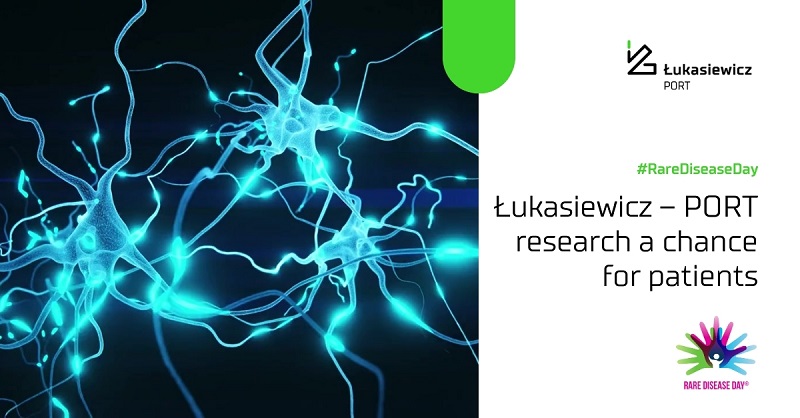Huntington’s disease in the spotlight of researchers of Łukasiewicz – PORT

Scientists from the Life Science and Biotechnology Center at Łukasiewicz – PORT work every day on therapies that may contribute to a breakthrough in the treatment of serious diseases. On Rare Disease Day, celebrated every year on the last day of February, we present the latest approach to the treatment of Huntington’s disease, which is the subject of research by Dr. Agnieszka Krzyżosiak and her Research Group on the Mechanisms of Neurodegeneration at our Institute.
Huntington’s disease is a rare genetic neurodegenerative disease that is estimated to affect 5 in 100,000 people. As the disease progresses, its most serious symptoms include uncoordinated, involuntary movements, motor problems, emotional symptoms such as depression, and cognitive impairment.
It is the most common neurodegenerative disease for which only one genetic factor is responsible. The direct cause of the disease is the expansion of the polyglutamine chain in the huntingtin protein, which leads to the aggregation of this protein and, consequently, a number of cell dysfunctions, deregulation of cellular proteostasis and, ultimately, cell death, i.e. death of neurons in the brain.
Among the greatest risk factors for the disease is age (35-50 years).
“In our research we investigate the molecular bases of Huntington’s disease, we focus primarily on the mechanisms of protein quality control to better understand the processes of huntingtin accumulation in the cell”, explains Dr. Agnieszka Krzyżosiak, leader of the Mechanisms of Neurodegeneration Research Group at Łukasiewicz – PORT. “Our previous studies confirmed that the pharmacological strengthening of cell proteostasis can better cope with the processes of aggregation of pathogenic proteins. Knowing that this approach, i.e. targeting protein quality control processes, is effective, we are currently looking for new therapeutic targets”, adds Dr. Agnieszka Krzyżosiak.
Innovation in research

What is innovative in research on Huntington’s disease at Łukasiewicz – PORT is the implementation of human models derived from patients as an alternative to animal models. The research method, which is based on reprogramming of disease-free cells (e.g. fibroblasts in the skin) into neurons, was developed by Dr. Andrew Yoo (USA). The innovative nature of this method is demonstrated by the fact that it allows cells to be reprogrammed to reflect both the genetic and epigenetic background of the disease.
With the latest research tools and methods on board, as well as scientists who have gained knowledge about this disease in international research centers, we hope to get closer to developing new standards in the treatment of Huntington’s disease.

